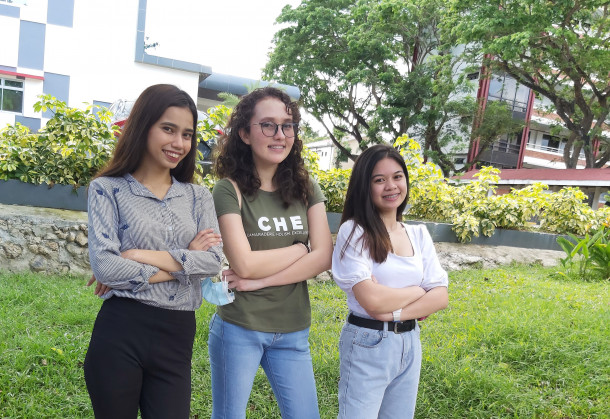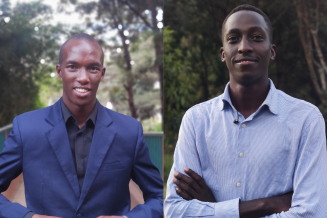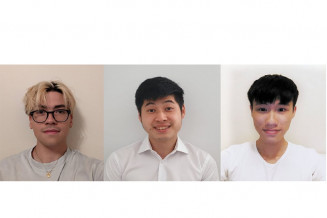Press release
All-girl team from the Philippines wins Sustainable Engineering Hackathon on UNESCO’s World Engineering Day

The runner-up team come from the University of British Columbia Okanagan in Canada. Ammar Zavahir, Patrick Jilek-Rodriguez and Wilson Holland developed a mobile rainwater harvesting system for indigenous communities in Canada.
Organized by the World Federation of Engineering Organizations with UNESCO support, the hackathon showcases the inventiveness of young engineers when it comes to solving real-life problems. Some 125 teams from 23 countries around the world competed in the hackathon, with nine teams from six countries making it through to the finals. These countries are Australia, Canada, China, India, Kenya and the Philippines. Some 92% of participants were engineering students.
During the first round of the hackathon, the teams were given 13 days to come up with a sustainable engineering solution to one of three challenges. These solutions demonstrate the resourcefulness of future engineers. Here is how some of the other finalists tackled these three challenges:
Challenge 1: the responsible and innovative use of materials and reduction of non-biodegradable waste
Water hyacinth, or Eichhornia crassipes, is one of the world’s most problematic weeds. It is believed to have been brought from the Amazon Basin to East Africa a few decades ago. Capable of doubling its biomass every 15 days, water hyacinth forms mats on the surface of a lake which block sunlight from penetrating into the lake, threatening plant and animal life, as well as the fishing industry. By preventing water flow, it also creates an ideal breeding ground for mosquitoes. The Hyapak team from Egerton University in Kenya, who won third prize, used this problem to solve another problem – plastic pollution. As part of a drive to plant almost 3,000 trees, they innovated a method for replacing the existing plastic wrappers around seedlings with rapidly biodegradable wrappers made of water hyacinth fiber.
Challenge 2: Bio-mimicry in engineering solutions
The design from the Ruby team at Monash University in Australia was inspired by the desert tortoise (Gopherus agassizii), which grows slowly and remains inactive during hot periods to conserve energy. Their smart energy meter calculates the real-time cost of operating high-energy household appliances, helping households make huge energy savings.
Challenge 3: Water Accessibility in a Changing Climate
The Graz team from the University of British Columbia in Canada created a solution to Namibia’s chronic water scarcity: fog harvesting. Namibia faces declining rainfall but, since the country is a coastal desert, it can rely on consistent levels of fog. With this in mind, the team developed ‘fog harvesting’ technology which allows inhabitants to draw water directly from the moisture of the air to obtain clean, fresh drinking water.
All nine finalists have produced short videos to be shown during a 24-hour live streaming event on 4 March, World Engineering Day. The live streaming will begin in Sydney, Australia, at midday local time on 4 March and conclude 24 hours later at 7 pm local time on 4 March in San José, Costa Rica.
The competition was judged by 40 engineers from 16 countries in the preliminary round and, in the final round, by six judges from UNESCO, Engineers Without Borders, the International Federation of Engineering Education Societies, the International Network of Women Engineers and Scientists, the Global Engineering Deans Council and the International Engineering Alliance.
World Engineering Day was first celebrated in 2020. This annual UNESCO celebration was established to raise awareness of the essential role that engineering plays in mitigating the impact of climate change and advancing sustainable development.
Note 1: The name WONDERPETS stands for Water remediatiON using metal-organic framework DERived from PET bottleS. They are from Batangas State University in the Philippines
Media contact

Phone: +33145681702
This article was amended on 7 March to add the winning team's university, the correct photo of the team in 2nd place, and to correct the photo captions accordingly.







